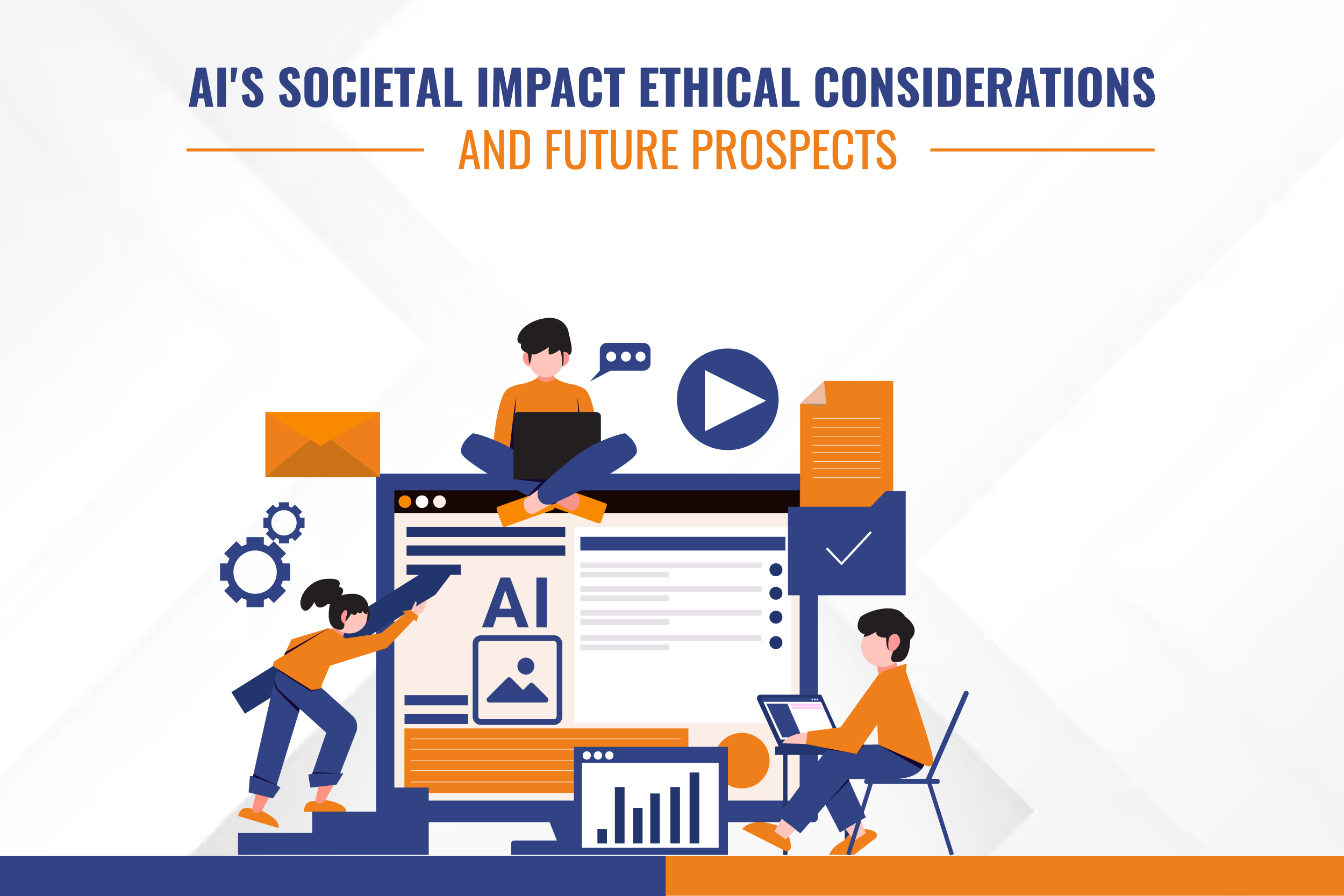
AI's Societal Impact Ethical Considerations and Future Prospects
In recent years, artificial intelligence (AI) has permeated various facets of our lives, from the way we shop online to how we receive healthcare services. While AI offers tremendous potential for improving efficiency and convenience, its societal impact raises significant ethical considerations that demand careful examination.
This article delves into the ethical implications of AI's societal impact and explores future prospects, particularly in the context of technical training courses and programs, both within academia and corporations.
AI's Societal Impact
Artificial intelligence, the simulation of human intelligence processes by machines, has rapidly transformed industries worldwide. Its applications range from predictive analytics and natural language processing to autonomous vehicles and medical diagnosis. As AI continues to evolve, its societal impact becomes increasingly profound, influencing employment, privacy, healthcare, and more.
Ethical Considerations of AI
Privacy Concerns
With AI systems collecting and analyzing vast amounts of personal data, privacy becomes a paramount concern. Issues such as data breaches, surveillance, and the potential misuse of personal information raise ethical dilemmas that must be addressed through robust regulations and transparency measures.
Bias and Fairness
AI algorithms are not immune to biases inherent in the data they are trained on. Biased AI can perpetuate discrimination in various domains, including hiring, lending, and criminal justice. Ethical AI development requires mitigating bias through diverse datasets, algorithmic transparency, and fairness-aware algorithms.
Autonomy and Accountability
As AI systems become more autonomous, questions arise regarding accountability for their actions. Who is responsible when an autonomous vehicle causes an accident, or an AI-powered medical diagnosis leads to a misdiagnosis? Establishing clear lines of accountability and implementing mechanisms for AI transparency and oversight are critical ethical imperatives.
Job Displacement and Economic Inequality
The automation of tasks through AI technologies has the potential to disrupt employment markets, leading to job displacement and economic inequality. Ethical considerations include ensuring equitable access to retraining opportunities and implementing policies that mitigate the negative impacts of AI-driven automation on vulnerable populations.
Weaponization and Security Risks
The development of AI for military purposes raises ethical concerns about the escalation of warfare and the potential for autonomous weapons systems to act without human intervention. Ethical frameworks and corporate technical training must guide the responsible development and deployment of AI technologies in the context of national security.
Future Prospects of AI
Technical Training Courses and Programs
Given the rapid advancement of AI technologies, there is a growing demand for technical transformation training courses and programs to equip individuals with the skills necessary to thrive in an AI-driven economy. These courses range from introductory programming and machine learning to specialized training in AI ethics and governance.
Corporate Technical Training Initiatives
Many corporations are investing in technical training programs to upskill their workforce and harness the potential of AI technologies. These initiatives encompass internal training modules, partnerships with educational institutions, and certifications in AI-related fields. Ethical considerations in corporate technical training include promoting diversity and inclusion, fostering responsible AI development practices, and ensuring transparency in AI deployment.
Ethical AI Design and Governance
The future of AI hinges on ethical design principles and robust governance frameworks. Stakeholders across academia, industry, government, and civil society must collaborate to establish ethical guidelines for AI development and deployment. This includes integrating ethics education into corporate technical training curricula, fostering interdisciplinary collaboration between computer science and ethics disciplines, and promoting transparency and accountability in AI systems.
Human-Centered AI Development
A key focus of future AI development should be on human-centered design principles that prioritize the well-being and agency of individuals. This involves soliciting diverse perspectives from stakeholders, incorporating user feedback throughout the design process, and prioritizing ethical considerations such as fairness, transparency, and accountability.
International Collaboration and Regulation
Addressing the ethical challenges posed by AI requires global cooperation and coordination. International organizations, such as the United Nations and the OECD, play a crucial role in facilitating dialogue and setting standards for AI governance. Ethical principles, such as those outlined in the OECD's AI Principles and the EU's Ethics Guidelines for Trustworthy AI, provide valuable frameworks for guiding the responsible development and deployment of AI technologies on a global scale.
Final Words
Artificial intelligence holds immense promise for enhancing efficiency, productivity, and innovation across various sectors. However, its societal impact raises complex ethical considerations that necessitate careful deliberation and proactive measures.
By prioritizing ethical AI design, promoting transparency and accountability, and investing in technical training programs, we can harness the transformative potential of AI while safeguarding against its unintended consequences. As we navigate the evolving landscape of AI, it is imperative to adopt a human-centered approach that prioritizes ethical considerations and advances the well-being of society.
